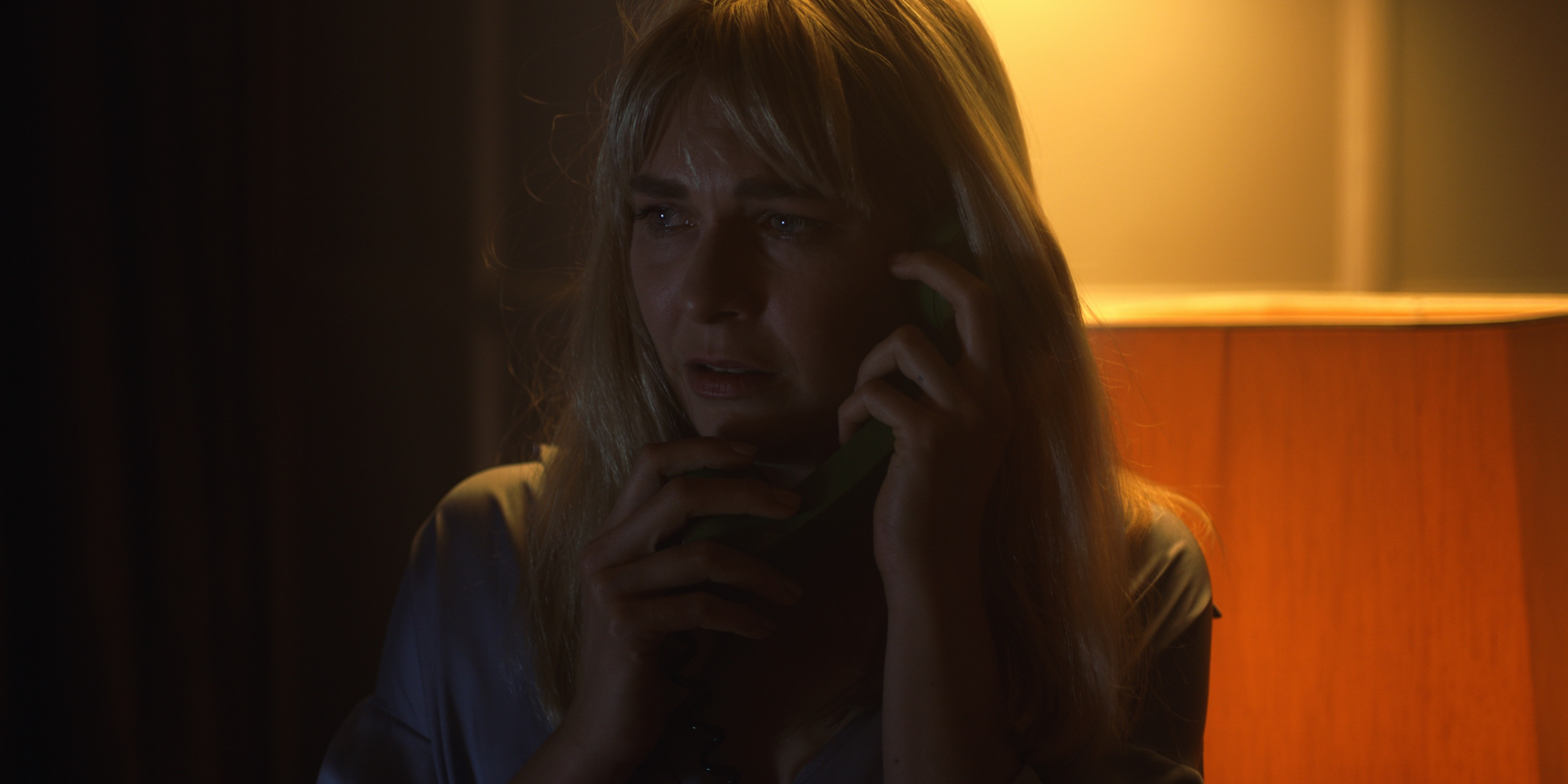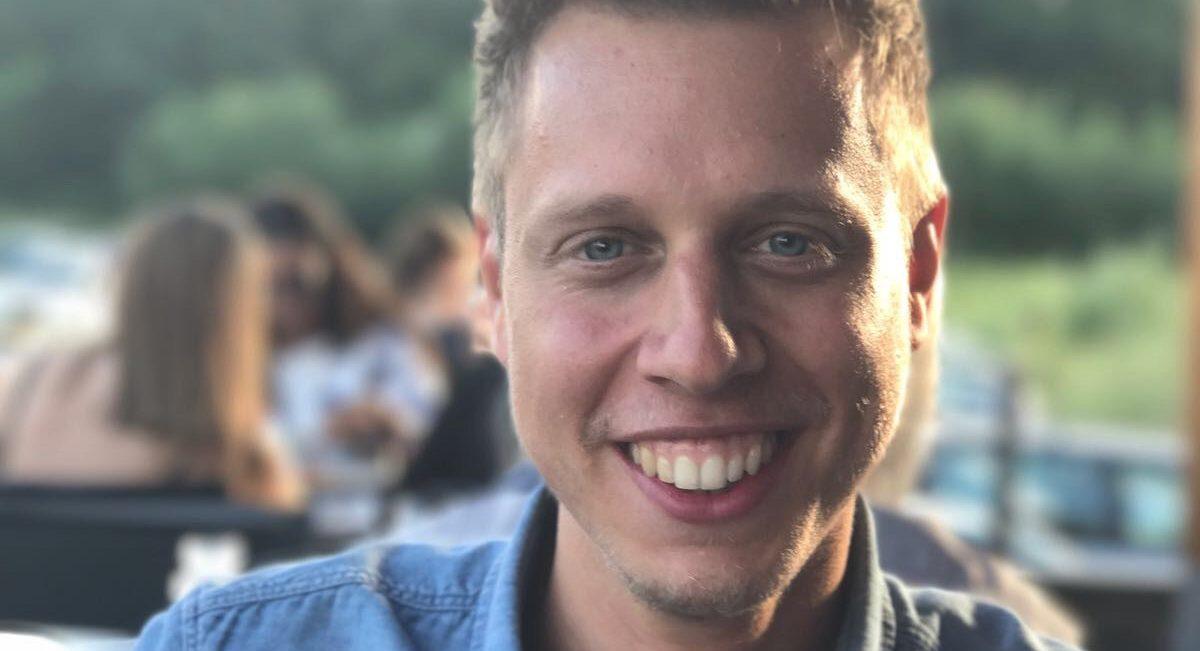
Case Study: Night Call
Tim Sagls tells us all about his love for gory horror.
Geplaatst op 7 september 2021Being a big horror enthusiast, Tim Sagl came up with a creepy story about a phonesex operator and her suppressed desires. Night Call became his graduation project and has already been selected for several festivals. The filmmaker tells us everything about the process of making his short film.
"What began as just a simple horror-gimmick in the style of Scream, went into a very personal story with a bit more substance about being yourself and making the right decisions in life."
Surprised by different layers
"The idea of Night Call came to me right after I finished my first short film. At first, it was just a fun gimmick for a horror story about a phonesex operator. During my last year in film school, I had to make a new short film to graduate. Like before, I wanted to make a classic horror movie (the movies that inspire me) but I wanted to do something special with it, to surprise the audience a bit more than my previous short. The idea of Night Call came back to my mind. It felt like a good concept for a student film: one location, one actress.
As a student you have to do a lot by yourself: writing, directing, production, casting... Often with a small budget. For that reason, I wanted to think small too. I've always looked up to low budget horror movies and how effective they can be.
The writing process of Night Call took a while, but it was necessary since the story could develop in so many ways. It seemed very easy to write a single location short. But it is also very difficult to keep the story interesting for the audience. Of course, I had a lot of creepy and gruesome scenes in mind. But the characters are most important.
I really loved the writing process of this short and I was surprised at how many different layers
this concept got. With each new draft I felt that there was a lot of room for personal themes.
What began as just a simple horror-gimmick in the style of Scream, went into a very personal
story with a bit more substance about being yourself and making the right decisions in life."

Bigger budget, more blood
"It took me a lot of rewrites to find the right balance between the backstory and the scares (and how to combine them). I asked for feedback by friends, teachers, and other writers/directors. This feedback was essential. It helped me to not only focus on the fun horror effects, but also gave the characters more depth. We also created new characters and made some changes to relate horror themes to the development of the main character.
During the writing process, I also started with the preproduction. Most crew members were other students or good friends who wanted to help me with this project. I had a lot of meetings with the DOP. We looked for ways to keep the movie visually interesting, because most parts are the main character talking with a 'stranger'. We decided that we could use our 'one-location-limitations' to give the story more layers. For example, we never show the outside world, to keep it more claustrophobic and get slowly into the main character's mind and her suppressed desires.
This is also the first production where I wanted to make use of some gore effects. I'm still a horror freak and I wanted to show more than in my previous work. Luckily, I won the first prize during a pitching session in Heerlen, so I had more budget for some bloody effects."
Adapting to pandemic
"The preproduction took a few months. The style of this movie is very oldschool (old landline phone instead of smartphones), so it took a while to find the right location with that oldschool vibe in it.
Sadly, not everything went as we hoped for. A week before the set, I had to cancel the shooting days in April because of the pandemic. After a few weeks I started the preproduction again. The shooting days were now planned for September.
The good thing was that I had a few more weeks to get everything ready. Due the lockdown I could take a little 'break’ and I even came with some new ideas for the screenplay. I'm very glad I could use those extra weeks, but I also had to search for new crew members and a new actor. Another problem was that most of the camera- and sound-materials we rented for April weren’t available in September. We had to shoot with other camera’s and lenses, so we had to change our previous shotlist a little.
The production was a special experience. Not only the night shoot was very hard. The
pandemic was still going on and we had to plan everything with the COVID-19 rules in mind
(like the distance during shoot or lunchbreak). This was not easy since most of the
production took place in just one single room."

Watch this short at Shift Film Festival
September 17-19, online.
Finding new ideas on the go
"One of the most difficult scenes was the bloodiest scene. Not everything went as we had in mind. It was also the last scene, so we were very tired from the nights before. Sadly, I can't talk more about it without spoiling the ending. But during the edit, we found a way to make the final scene still work (even if it is totally different than initially planned).
This is still an important thing to accept for me. I try to plan everything and keep it safe, but the shooting days are always full of surprises, and you always must be inventive, be open for changes and be flexible. With every new set, I learn to be more relaxed and find good solutions when something seems not to work out.
Night Call had its premiere at the International Short Film Festival of Leuven in Belgium. I was really happy with that selection, although this is not a horror festival. So, I'm not quite sure if the movie was well received by the audience.
Recently Night Call was selected at some genre related festivals. Last month it played at Macabro in Mexico and in October it will play during Film Quest Fest. I'm glad people enjoy my work, which motivates me to go on with my passion. And I hope the next horror festivals will be the right place for Night Call."

(c) All visual material is used with the filmmaker's permission.